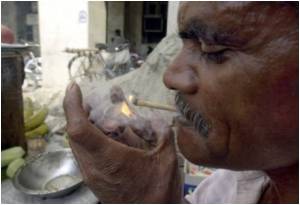People belonging to lower socioeconomic status (SES) find it tough to quit smoking than their counterparts, who have greater financial and social status.

Whether rich or poor, participants managed to quit at about the same rate upon completing a program of cognitive behavioral therapy, either with or without nicotine patches. But as time went on, a disparity between the groups appeared and widened.
Those with the fewest social and financial resources had the hardest time staving off cravings over the long run.
"The poorer they are, the worse it gets," said Professor Sheffer, who directed the program and was an assistant professor with the University of Arkansas for Medical Sciences at the time.
She found that smokers on the lowest rungs of the socioeconomic ladder were 55 percent more likely than those at the upper end to start smoking again three months after treatment.
By six months post-quitting, the probability of their going back to cigarettes jumped to two-and-a-half times that of the more affluent smokers.
Advertisement
The study will be published in American Journal of Public Health.
Advertisement















